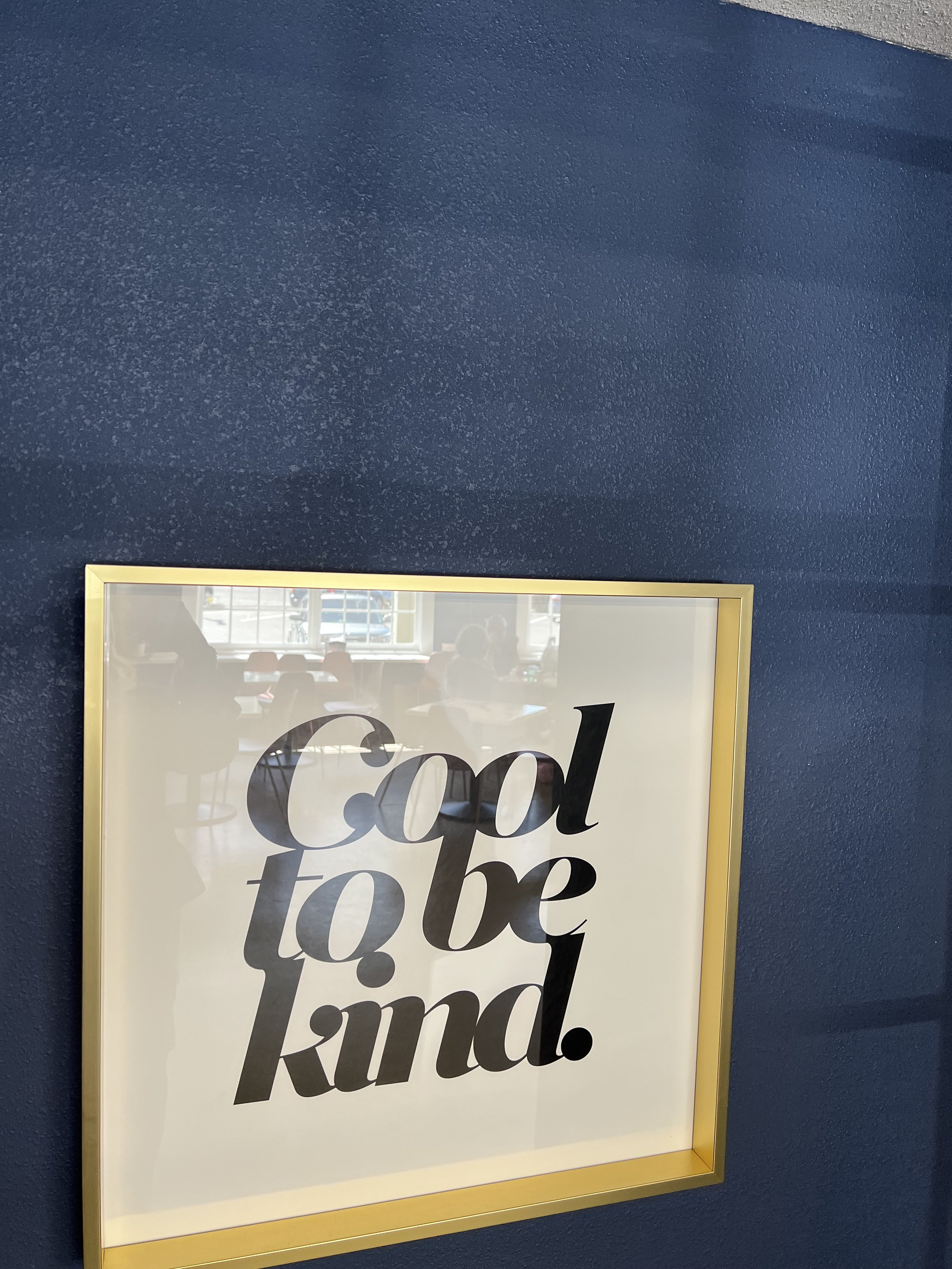What to do in the tender gravity of kindness when you could tilt either way?
After a long day of work, the restaurant was dark, quiet, uncrowded, perfect for good conversation between honest friends. I had been looking forward to seeing my friends, knowing our conversations would span the skies and sweep the dirt - work, kids, poetry, following Jesus, our heartaches and brave dreams. There was news to share.
But when our waiter finally arrived, he was so hurried he was gone as the first words left our lips. We had to place our order in spurts, calling him back to complete it. He was curt, brusque, unavailable but for his clipped words and sparse eye contact. He left our check with a huffy sigh.
When it came time to add a tip, I hesitated. I wanted him to do better.
Every old thing in me wanted to pay equal to the service rendered - low to nothing. But as my pen hovered over the tip line on the ticket, in that momentary pause, I remembered another way, a hopeful, generous, merciful way, and I tilted toward it. I offered a fat tip for bad service. If he was surprised, I didn’t know it. But no one was more surprised than me.
My first job had been as a hostess without tips, then a waitress who carefully stacked my hard-won tips into white envelopes all summer to pay for my college books in the fall. It wasn’t my usual way for I know I have spent too much time protecting myself from being foolish and being intent on “earning” my tips.
But in the last few years, I have been wanting a different kind of math at work inside me. A type that challenges what I have learned so far about fairness and of the kind Justin Welby calls God being bad at the maths.
That was it. I wanted our waiter to encounter a different economy, one of mercy and kindness.
Why? Because it is God’s inexplicable inexhaustible way. I remembered that God was shaping me with a merciful hand. He was forming me in kindness and generosity. And the only way to let my new landscape take shape was to surrender to his hand.
I haven’t always wanted it, and will likely be reluctant again (Lord have mercy on my rebel heart), but I sensed an invitation born in another country to be kind in the face of our waiter’s unkindness. This isn’t any great quality I can claim apart from God’s presence making a home in me. I was welcoming a type of kindness found deep in God’s goodness to spill out of him in me, “The Lord is good to all, And His tender mercies are over all His works”. (Psalm 145)
I wanted to meet this rude waiter’s eyes and see what might be hidden there. He seemed hard and hooded. But that might only be his exterior. I had so many questions. What happened? What are you carrying? Where are you hurting or overwhelmed? What could be different after we meet across a dinner ticket?
But he never came back to the table.
We all hope for a kinder more beautiful world, for tenderness, connection and belonging. But we don’t always know how to go about it. In times when others are rude, there are so many voices saying some version of, “Don’t be so soft”, “Call the manager”, “Don’t be taken advantage of”, or “Teach them how to treat you”. And perhaps some moments call for these responses. Certainly, in patterns of dysfunction or abuse, boundaries are kindness. Your healthy boundaries may be genuine caring for others and yourself. Our deep dinner conversation that night was about just such a situation.
We can, in the face of unkindness, choose our response to include both healthy boundaries and kindness. We can respond with a nimble resistance to things always adding up to our efforts or in our favor. That was the invitation I sensed as my pen hovered over the bill. I don’t have to be small or return the small and narrow that is given to me.
I remembered something Dallas Willard wrote,
[When we are fretting], we may be tempted to think that maybe, just maybe, God is as stingy and small as we are (or others are towards us). He is not. God loves to give. god loves to forgive. God loves to gush forth his goodness.
(Emboldened words are my add.)
Whether we hold a boundary or cross one in grace is the discernment we need moment by moment. We can try and imitate the character and strength of our Triniarian God over than another type of strength. He is gushing forth his goodness. Can I gush forth his goodness, too?
Plain and simple, difficult and and reluctant as it might be.
But it may take a different kind of math than we are used to.
I often get stuck in score-keeping math. In this fragile moment, it could have gone any number of other ways (and frankly, it has). Bur I wanted something to change (ahem, the waiter) and decided this time, it just might be me.
I responded to God’s kindness wooing me to do better once I glimpsed that the kindness of God is happening already whether I join in or refuse. God’s kindness has come from his suffering and sadness. And my will too. It is waking up alongside a deep ache to let God chase chase others in ways that do not add up in any mathy way including being seen, appreciated, or changing anyone but us.
I want to tell you its, “Cool to be Kind” like this sign I saw at a bakery. And I believe it is when my heart is open to God’s nudge. Also, it might not feel very cool in the moment.
In the end, I remembered both the parable of the vineyard workers in Matthew 20 (always a correction to our math) and a bit of a poem by Naomi Shihab Nye called “Kindnesss”.
Kindness
by Naomi Shihab Nye
Before you know what kindness really is
you must lose things,
feel the future dissolve in a moment
like salt in a weakened broth.
What you held in your hand,
what you counted and carefully saved,
all this must go so you know
how desolate the landscape can be
between the regions of kindness.
How you ride and ride
thinking the bus will never stop,
the passengers eating maize and chicken
will stare out the window forever.
Before you learn the tender gravity of kindness
you must travel where the Indian in a white poncho
lies dead by the side of the road.
You must see how this could be you,
how he too was someone
who journeyed through the night with plans
and the simple breath that kept him alive.
Before you know kindness as the deepest thing inside,
you must know sorrow as the other deepest thing.
You must wake up with sorrow.
You must speak to it till your voice
catches the thread of all sorrows
and you see the size of the cloth.
Then it is only kindness that makes sense anymore,
only kindness that ties your shoes
and sends you out into the day to gaze at bread,
only kindness that raises its head
from the crowd of the world to say
It is I you have been looking for,
and then goes with you everywhere
like a shadow or a friend.
I finally decided to just let God’s gravity pull me closer and so shorten both the desolation and distance between regions of kindness for our waiter, but also, and here’s the surprise, in and around me.

